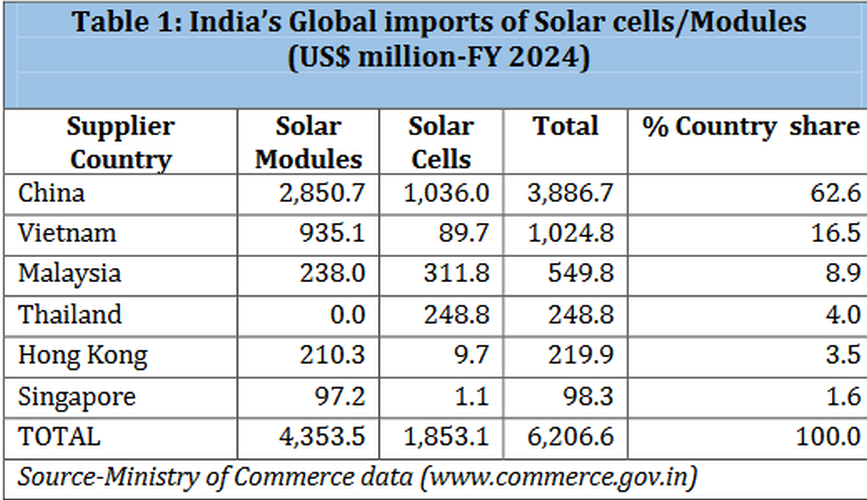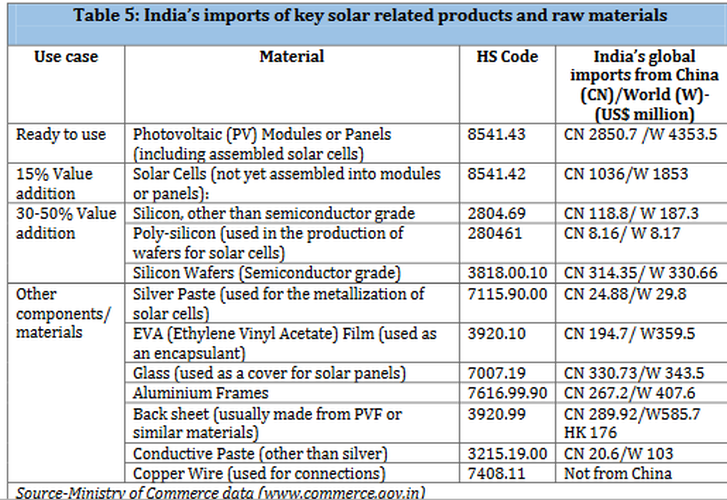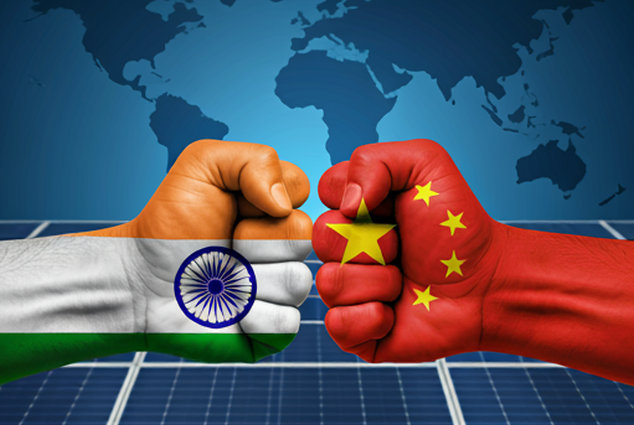India’s ambitious goal of achieving 500 GW of renewable energy capacity by 2030 is at risk due to its heavy reliance on Chinese solar equipment. The Global Trade Research Initiative (GTRI) warns that the country’s annual solar equipment imports could skyrocket to $30 billion by 2030.

This dependence on China poses significant challenges for India’s energy independence. Despite government efforts to promote domestic manufacturing through initiatives like the Production Linked Incentive (PLI) scheme, Chinese predatory pricing continues to undermine India’s efforts.
To achieve its renewable energy targets, India must increase its annual solar installations to 65-70 GW by 2030. However, its reliance on imports could hinder progress. The Economic Survey 2023-24 highlighted China’s dominance in global solar manufacturing, controlling 97% of polysilicon production and 80% of solar modules.

India’s efforts to boost local manufacturing through the PLI scheme have had limited success. The country’s solar manufacturing sector remains heavily dependent on imported components, with only 15% local value addition. To reduce imports, India must invest in upstream solar production, including silica refining and polysilicon production.
Domestic production of key materials like aluminum frames and glass is also crucial. India needs to collaborate with other countries to establish large-scale solar manufacturing facilities. While tariffs and free trade agreements have been implemented to reduce dependence on China, India’s solar ambitions will remain vulnerable until it can develop a self-sufficient solar manufacturing ecosystem.
Reference- Indian Express, Economic Times, Global Trade Research Initiative (GTRI), Economic Survey of India






